Thanks to advances in equine medicine, good nutrition and proper management care, horses are now living longer, healthier lives. Many horses are still being ridden and have productive show careers in their 20’s and, in many riding disciplines, horses are considered to be at their prime when they are well into their teens. Just like people, horses age at different rates – you might have a 13 year old horse who is slowing down and is starting to show signs of aging, or you might have one in his early 20’s who is still going strong. Genetics, care, proper nutrition and exercise all play important roles, so as your horse starts to get older you’ll want to keep an eye on him and watch for signs of aging.
You might see physical changes in your horse, such as a decrease in his body condition, loss of weight, or loss of muscle mass. Or as your horse starts aging, you might notice that he is developing a sway back or that he is starting to have dental problems. Along with physical changes, your horse’s nutritional needs will also start to change and you’ll need to do some research to learn what to feed an older horse. The nutritional requirements of older horses can vary quite a bit between each horse; some older horses may not need any adjustments made to their diet, while other horses might benefit from dietary changes to help them stay healthy and strong. So while there is not a “one size fits all” diet for an older horse, there are several choices and strategies you can use to help provide your horse with a diet that is suitable for him as he enters into his senior years.
Look For Changes
Most likely you’ve been feeding your horse quality hay during his younger years, and many senior horses can continue to eat and digest hay without any difficulty. But if you notice any changes in your horse’s eating behavior, you’ll need to contact your veterinarian to have his teeth checked (and possibly floated), and also discuss what he recommends that you feed your older horse.
One of the first things that you’ll notice if your horse is having difficulty chewing his hay is quidding, which is when he eats and then drops partially chewed wads of hay on the ground. You may also notice that your horse is eating much slower than he used to, or is lifting, shaking or twisting his head while he’s eating. And as a result of these issues, your horse may also have difficulty swallowing along with decreased saliva production, and this could result in esophageal obstruction or choke. So if you notice that your horse is having problems chewing his hay, your first course of action is to contact your veterinarian for a dental exam.
Along with having your horses’ teeth checked, you’ll also want to discuss with your veterinarian the body condition of your horse and address any concerns you may have regarding weight loss. Senior horses often have changes in their metabolic and digestive systems as they get older, so you might need to make some alterations to your horse’s diet so that he has nutritious food that is easy for him to eat. Generally speaking, your older horse is going to need a diet that is easy to chew and digest, is highly palatable, and is also dust free. His overall diet should be based on digestible fiber, with a protein level around 12% to 14% and depending on the condition of your horse, his feed may need to be low in sugar and starch especially if he has Equine Metabolic Syndrome or Cushing’s disease.
Hay Choices
If your senior horse is able to eat hay without a problem, make sure that the hay is high quality hay that is easy for him to chew, swallow and digest. High quality hay is typically harvested at an early stage, is less fibrous than older mature hay, and is soft and easy to chew. Overly mature hay typically has a very high stem content which can be coarse and difficult for your senior horse to eat.
Depending on where you live, there should be a number of choices of quality hay that you can select for your older horse. You’ll want to feed hay that is leafy with very few stems, is light to medium green in color, and smells fresh and slightly sweet. The hay should be soft and pliable to the touch, and should be free of weeds or other types of foreign material. Also, make sure the hay is free of dust or mold, as this could lead to respiratory problems or gastrointestinal issues such as colic.
If you are not able to find quality baled hay in your area, another option for your older horse is to feed commercially produced chopped hay. The hay is harvested at the early stages of growth, dust particles are carefully removed, and the hay is then chopped into small pieces (approximately 1” long) so it’s easy for older horses to chew and digest. If you decide to use chopped hay, you may also want to add water and soak the forage, which will make it even easier for your older horse to eat.
Hay Cubes And Hay Pellets
Hay cubes and hay pellets are another choice of forage that you can feed to your older horse. Hay cubes are made by pressing hay into small squares, whereas hay pellets are made by compacting and pressing the forage through a preset form, and then cutting the produced pellet into the desired length. Both hay cubes and pellets are good choices, since they are easy to store, are typically less dusty than baled hay, and usually produce less waste. Hay cubes and pellets, however, are typically more expensive than baled hay and some horses will eat them at a quicker rate which could potentially cause digestive problems. If this is the case with your horse, you should feed him several smaller meals during the day, or place the feed in different locations throughout his pen so he will be less likely to eat it all at once.
If you decide to feed hay cubes, your horse might have difficulty breaking the cubes apart due to normal tooth wear or maybe he has lost some of his teeth due to aging. If you find that your horse is having problems chewing hay cubes, you can add some water and allow them to soak for at least 5 to 10 minutes before feeding. Depending on your horse’s condition, you can add just enough water to soften the cubes, or you can add extra water so that it’s a soup-like “slurry” consistency. Soaking his feed in advance will help dentally challenged horses chew and swallow easier, which can help reduce the risk of choke or colic. However, you’ll want to make just enough wet food that your horse can eat within a relatively short time period, since during warm weather the food can spoil quickly.
Senior Feeds
As your horse gets older, his ability to digest and absorb nutrients from his feed will become more challenging than when he was younger, so it could be beneficial to look into adding a senior feed to his diet that is specially formulated for older horses. Senior feeds typically have a higher nutrient content and are formulated with high quality fiber sources such as top quality hay, beet pulp and soy hulls. They also have a higher fat content (usually from vegetable oil, flax seed or rice bran) which can help provide your horse with extra energy and help him maintain a healthy weight.
Senior feeds typically are highly palatable, are easy to digest, and are fortified with vitamins and minerals to meet the specific needs of an older horse. Senior feeds are also soft and easy to chew and digest, and can be mixed with water to make a mash for horses who have difficulty chewing and swallowing their feed.
Most senior feeds are considered to be “complete feeds” and can be fed either as part of a balanced diet (along with quality hay, cubes or pellets) or can also be used as a replacement to forage if your horse is not able to eat hay or pasture grass. You’ll want to follow the recommended feeding rate that is on the packaging label and if you have any questions, you can always call their Customer Service department and speak to a feed advisor. Ideally, try to feed your senior horse at more frequent intervals such as 2 to 3 times a day and, as with any feed, you’ll want to make any changes to your horse’s feeding program slowly over time so as not to cause digestive upset.
Additional Choices
There are many other feeds and additives that people give to their senior horse in order to help them maintain their body condition. Many people give shredded beet pulp to their senior horses; beet pulp is a highly digestible fiber source and can be soaked in water and fed in addition to hay. For horses that have metabolic issues, you’ll need to soak and rinse the beet pulp first, since most beet pulp products contain high levels of sugar and/or molasses. A lot of horse owners like to give their senior horse either grain mixes, stabilized rice bran, or extruded pellets with added vegetable oil. Others prefer to add fat to their horse’s diet by adding vegetable oil on top of their horse’s grain or pellets. As with all dietary changes, you’ll need to make sure that all of your horse’s nutrient requirements are being met, as an imbalance of vitamins or minerals can cause problems in your horse. Your veterinarian and equine nutritionist can assist you in providing your senior horse with a well-balanced diet that is best suited for your horse’s individual needs. In addition to choosing a customized diet for your older horse, you’ll also want to give him an effective joint supplement such as InflamAway HA-200 to help support his healthy joints and mobility.
As your horse gets older and you start noticing changes in his body condition and attitude, you’ll probably need to alter his diet, adjust his feeding schedule and feed smaller meals at more regular intervals. You may also need to move him away from younger or aggressive horses so that he won’t have to compete for food. Ideally, all senior horses should have a yearly veterinarian exam to check for health or dental issues and to also monitor his body weight and body condition score. By working with your veterinarian and your equine nutritionist, you’ll be able to address any concerns or issues immediately, and help your horse lead a long, healthy and comfortable life during his golden years.

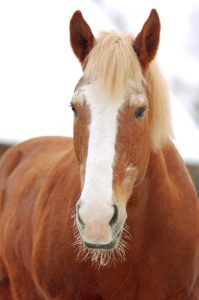
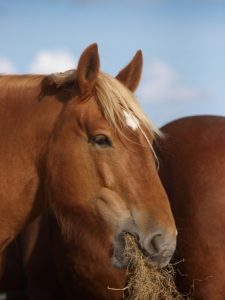
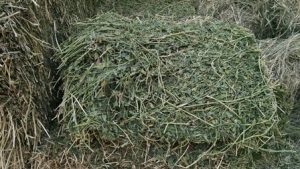
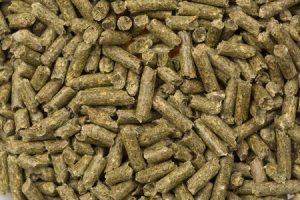
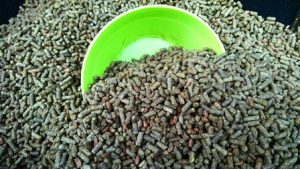
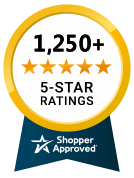

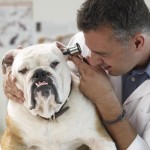

Johanna says
Just needing extra help in feeding my 28 year old horse. Looking forward to discovering a diet that meets all his needs. He is on pergolide for crushing and butte for arthritis. I’ve tried many different types of hay, senior feeds,supplements etc……mixing and matching. His teeth were done 4 months ago. I break up his hay, some days it’s alfalfa, some days timothy, some days it’s orchard………I’m throwing SO much away. Thank you for caring
Patricia Longworth says
This is not in answer to your needs, but try feeding Farnham Bute-Less pellet form daily. I found this to be better than pills. Switching hay needs to be gradual. Be careful with alfalfa. Only feed what he will eat so as to prevent waste. I feed Bermuda and it’s good hay. My boy is 17 ottb.
Deborah Colvin-Peterson says
Looking forward to your newsletter
Debbie B. says
Looking forward to your articles!
Barbara says
Good article